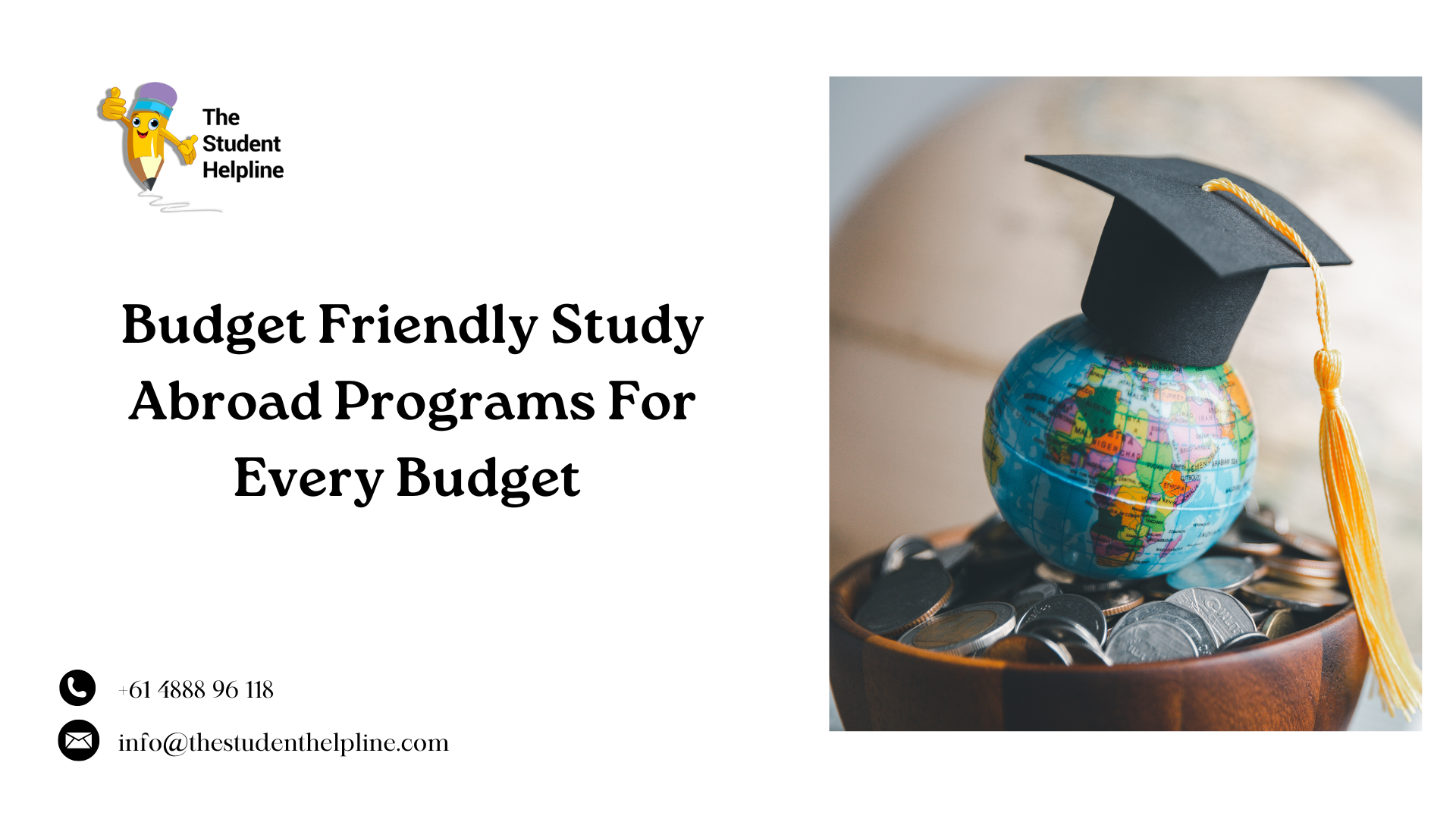Budget Friendly Study Abroad Programs For Every Budget
Studying abroad is a life-changing experience that offers unparalleled opportunities for personal growth, cultural immersion, and academic enrichment. However, the perception of studying abroad as an exclusive and costly venture can deter potential students. Fortunately, there are numerous programs that cater to various financial situations. With strategic planning and guidance from an experienced study abroad consultant, students can find affordable options that align with their goals and budget. This article outlines some of the most budget-friendly study abroad programs, regions, and tips for maximizing the experience without draining your savings.
Choosing the Right Destination
The cost of studying abroad varies widely depending on the destination. While studying in countries such as the United States or the United Kingdom may be expensive, there are several regions where the cost of living and tuition are much more affordable. Here are a few destinations to consider:
- Latin America: Countries like Mexico, Peru, and Argentina offer affordable tuition fees, lower costs of living, and vibrant cultures. These countries also provide opportunities for Spanish language learning, enhancing students’ linguistic and cultural skills.
- Eastern Europe: Nations such as Poland, Hungary, and the Czech Republic boast lower tuition fees and living costs compared to Western European countries. Despite being more budget-friendly, these nations offer high-quality education and a rich historical backdrop.
- Southeast Asia: With countries such as Thailand, Malaysia, and Vietnam, students can access affordable education, warm climates, and diverse cultures. The cost of living in these countries is significantly lower than in Western nations.
- India: Renowned for its rich cultural heritage and academic institutions, India offers budget-friendly programs with reasonable tuition fees and low living expenses.
Government and University Scholarships
One of the most effective ways to reduce the cost of studying abroad is to take advantage of scholarships offered by governments and universities. Scholarships can be based on merit, financial need, or specific fields of study. Working with a study abroad consultant can help students navigate the vast number of available scholarships and identify those that best match their qualifications.
Tuition-Free or Low-Cost Universities
In some countries, higher education is either tuition-free or offered at very low costs to both domestic and international students. A study abroad consultant can guide you through the admission process and eligibility criteria for these institutions.
- Germany: Most public universities in Germany do not charge tuition fees for undergraduate programs, even for international students. Students are typically only required to pay a small administrative fee per semester.
- Norway: Norwegian public universities offer tuition-free education to all students, regardless of nationality. The only cost incurred is a small semester fee. However, students should be prepared for a higher cost of living.
- France: While private universities in France can be costly, public institutions are much more affordable. Students from within and outside the EU can benefit from the subsidized tuition fees. Additionally, learning some French can be an advantage for those studying in public universities where courses are offered in the local language.
- Argentina: Public universities in Argentina offer free education to both local and international students. With low living costs and a welcoming culture, Argentina is an appealing destination for budget-conscious students.
Part-Time Work Opportunities
One way to manage the financial burden of studying abroad is to take advantage of part-time work opportunities. Many countries allow international students to work while studying, which can help cover living expenses and contribute to the overall experience.
- Australia and New Zealand: Both countries offer students the opportunity to work up to 20 hours per week during term time and full-time during holidays. This allows students to gain work experience and earn extra income to offset costs.
- Canada: With its welcoming approach to international students, Canada allows part-time work during the academic year and full-time work during scheduled breaks. Students can benefit from a combination of high-quality education and practical work experience.
- Ireland: International students in Ireland can work part-time during their studies. The income earned can significantly help with living expenses.
Affordable Living Options
The cost of living can vary significantly between different cities and countries. Budget-conscious students should consider factors such as housing, food, transportation, and entertainment when choosing a study destination. Here are some tips for affordable living:
- Student Housing: On-campus or shared student accommodations are often more affordable than renting a private apartment. Many universities offer budget-friendly housing options for international students.
- Homestays: Staying with a host family not only provides an immersive cultural experience but also often includes meals, reducing overall living costs.
- Public Transportation: Students can save significantly by using public transportation rather than owning a vehicle or relying on taxis. Many cities offer discounted transit passes for students.
- Cooking at Home: Preparing meals at home is much more cost-effective than eating out regularly. Learning to cook local dishes can also enhance the cultural experience.
Short-Term and Exchange Programs
Short-term study abroad programs or exchange programs are excellent options for students looking to gain international experience without the long-term financial commitment. These programs usually last from a few weeks to a semester and often have lower costs compared to full-degree programs.
- Summer Schools and Internships: Many universities offer short-term courses and internships that allow students to gain valuable academic and work experience abroad at a fraction of the cost.
- University Exchange Programs: Partner universities often have exchange agreements where students can study abroad for a semester or year while paying their home institution’s tuition fees. This arrangement can be more budget-friendly than enrolling directly in a foreign university.
- Language Programs: Immersive language programs are shorter in duration but provide intensive learning experiences. They are ideal for students looking to enhance their language skills and explore a new country without committing to a full degree program.
Budget Planning and Financial Management
Proper financial planning is key to ensuring that studying abroad remains within your budget. Here are some practical tips:
- Create a Budget: Before departing, outline a budget that includes tuition, housing, food, transportation, entertainment, and emergency funds. Stick to this budget to avoid overspending.
- Use Financial Apps: Many apps can help track expenses and maintain a budget while studying abroad. This helps students stay accountable and manage their finances effectively.
- Seek Out Discounts: Many countries offer student discounts for transportation, museums, and recreational activities. Carrying an International Student Identity Card (ISIC) can provide access to numerous discounts worldwide.
- Connect with a Study Abroad Consultant: A study abroad consultant can provide expert guidance on how to manage finances, secure scholarships, and plan for an affordable study abroad experience.
Conclusion
Studying abroad on a budget is achievable with the right approach and careful planning. By selecting cost-effective destinations, applying for scholarships, and taking advantage of part-time work and student discounts, students can experience the enriching benefits of international education without financial strain. Consulting a study abroad consultant can make a significant difference in finding the most budget-friendly options tailored to individual goals and needs. With the right guidance, studying abroad can be an affordable dream within reach for every student.












Post Comment